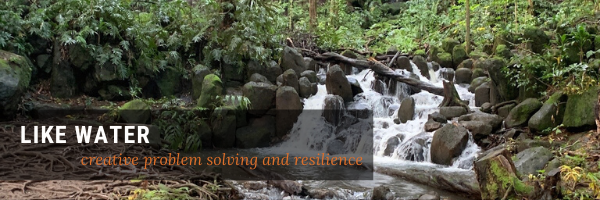
David on Season 7 of MasterChef made it as far as the final five when he nearly gave up and walked out. If you aren’t familiar, MasterChef is a contest to find the best home cook in America. Auditions take place throughout the country, and the top 100 make it to the screening where 20 are given the “coveted white apron” and continue on to compete. Each week, the cooks are subjected to rigorous challenges in which one cook is eliminated. To make it to final five is no small feat – the amount of talent and the mental strength you need to strategically weave your way through each challenge is daunting.
In the episode when David nearly walked out, the challenge presented by Gordon Ramsay was to cook your favorite dish. Contestants were given five minutes to “shop” in the extensive pantry after which they returned to their stations with their baskets when, you knew it was going to happen, Chef Ramsay throws in the kicker: You don’t get to cook with your own basket. I mean, you knew it wasn’t going to be that easy. And Shaun, the DJ from Las Vegas, has the advantage, so he gets to pick who will be cooking with what baskets.
David had plans that were ruined by a competitor who had an advantage. David got angry and took off his apron and left the kitchen.
Sound familiar? Yeah, it happens all. The. Time. You have plans, and they get derailed. We can take off our aprons and exit, or we can adapt and carry on.
Duncan Wardle, a former Disney Imagineer, talked to a group of us about creative brainstorming years ago. He asked us to partner with our neighbor and do an exercise. He gave Person 1 a story starter like – “This morning I woke up in the hotel room…” and gave us free rein to tell whatever story we wanted from there. Person 2 was asked to randomly call out words that Person 1 would then have to incorporate into the next sentence of their story.
Person 1 might have had a plan for the story, but then it would get derailed, and they would have to change the story. (Or take off their apron and leave the kitchen)
It’s a great exercise because nothing ever goes as planned, and we have to think quickly, adjust, and move forward. Sometimes, I try the “yes, and…” drill, a classic improv technique where you take the new input and improvise to keep the forward momentum. In improv, you don’t want to stop the energy of the story with a “no, but…” response.
I like to gather all the information needed, the change required, and, depending on how much time I have, sleep on it, or go take a trail run. Or step away from the desk and let it all marinate in my brain.
Daniel Levitin, in The Organized Mind, explains how our brains work to solve problems. In knowing this, we can optimize our own process. The left prefrontal cortex and anterior cingulate processes all the information, possible solutions, and scenarios.
“In a second phase, we need to relax, let go of the problem and let networks in the right hemisphere take over. Neurons in the right hemisphere are more broadly tuned, with longer branches and more dendritic spines. When the brain is searching for an insight, these are the cells most likely to produce it. The second or so preceding insight is accompanied by a burst of gamma waves, which bind together disparate neural networks, effectively binding thoughts that were seemingly unrelated into a coherent new whole. For all this to work, the relaxation phase is crucial.” – Daniel Levitin, The Organized Mind
^^^ that burst of gamma waves might otherwise be known as the Aha Moment.
Chef Ramsay eventually convinced David to put his apron back on and return to the kitchen. We won’t always have a Chef Ramsay on our shoulder. We can, however, be like water and learn to go over, around, or under the rock or obstacle blocking the way. No matter what we do, the water will continue to flow.
I’m going to get up from my desk now because I can’t come up with a headline for this article, so I better go take the dogs for a run. If you’re receiving this, you know it worked.
Stay in touch.
Sign up for our newsletter / podcast to get emails of great stories like this.
[ssba]
Thanks for sharing. I read many of your blog posts, cool, your blog is very good. https://accounts.binance.info/register?ref=IJFGOAID